
LanzaJet secures funding for first alcohol-to-jet SAF plant
LanzaJet secured financing to complete construction of the world’s first alcohol-to-jet sustainable aviation fuel plant with a $50 million investment from the Microsoft Climate Innovation Fund. The Freedom Pines Fuels plant is under construction in Soperton, Georgia, and is now expected to be operational in 2023 producing 10 million gal. of sustainable aviation fuel (SAF) and renewable diesel from waste-based sustainable ethanol. LanzaJet was spun out of carbon recycling pioneer LanzaTech in June 2020 to commercialize alcohol-to-jet (ATJ) technology developed by LanzaTech and the Pacific Northwest National Laboratory. Investors in LanzaJet include Canada’s Suncor Energy, British Airways, Shell and Japan’s Mitsui. British Airways also has agreed to purchase SAF from the Soperton plant.
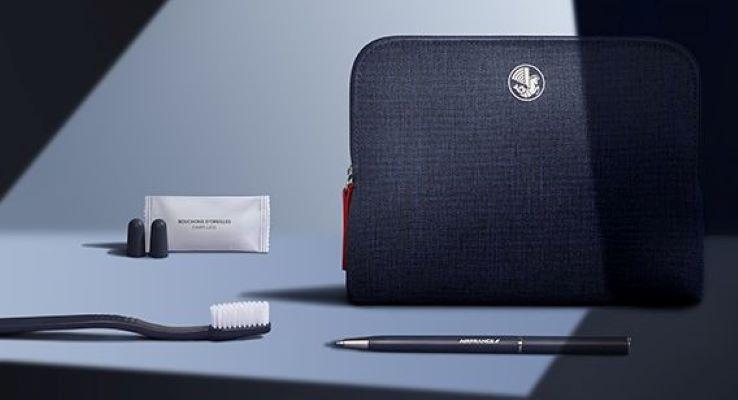
Air France introduces eco-responsible comfort kits
Air France is offering its long-haul business and premium-economy customers a new eco-friendly navy blue or grey comfort kit, made up of 93% recycled material. Business class kits contain a toothbrush and pen made of cornstarch, and ear plugs packaged in kraft paper, eliminating the use of plastic. Also included is a large and soft sleep mask, socks, toothpaste and Clarins cosmetics. Premium economy passengers receive either a red or blue kit including a toothbrush made of cornstarch and ear plugs packaged in kraft paper, a sleep mask and a pair of socks. In all cabins, the plastic packaging of each kit is now replaced by a tamper-evident seal. These kits can be collected and taken home after the trip and used again.
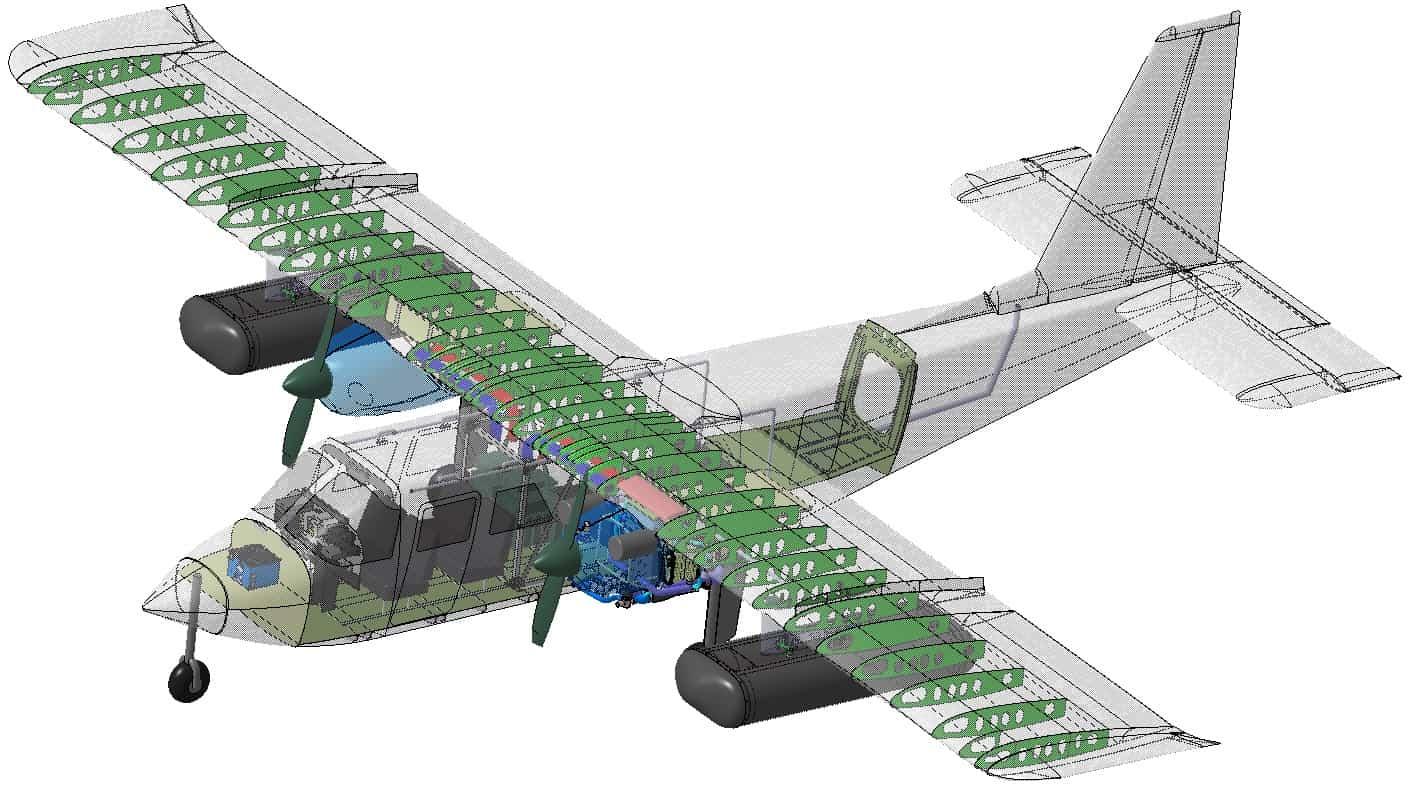
EasyJet to support development of hydrogen propulsion
European low-cost carrier easyJet will support the development of hydrogen fuel-cell propulsion by the UK’s Cranfield Aerospace Solutions (CAeS), providing its perspective on how the zero-emissions technology could integrate with future airline operations. CAeS is leading development of a fuel-cell powertrain for the nine-passenger Britten-Norman Islander, and sees this as a first practical step toward development of hydrogen-powered commercial aircraft with 19 to 100 seats. While it has no plans to operate islanders, EasyJet views hydrogen propulsion as a frontrunner for decarbonizing short-haul airlines and will provide expertise to help with development of the technology. CAeS has a similar cooperation agreement with Scottish regional airline Loganair, which does operate Islanders. As a first step, an Islander will be modified to a flight demonstrator that is planned to fly in the first quarter of 2023 with funding support from the UK government under Project Fresson. The preliminary design review for the demonstrator is now under way.
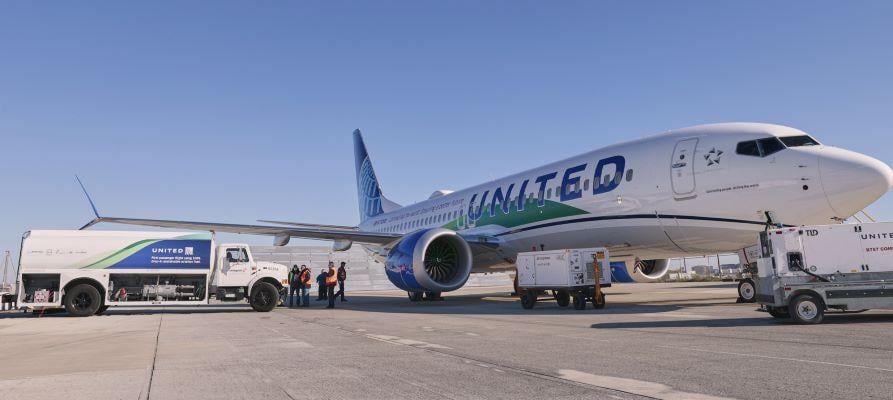
BP, Johnson Matthey partners on Virent 100% SAF
Targeting increased supply of sustainable aviation fuel, specialty chemicals heavyweight Johnson Matthey has introduced a technology to enable the cost-efficient production of synthetic crude oil on scales from small to large. The HyCOgen technology uses catalysts to convert captured carbon dioxide and green hydrogen into cabin monoxide (CO), which is then combined with additional hydrogen to form synthesis gas (syngas). Using Johnson Matthey’s CANS modular Fisher-Tropsch (FT) reactor technology, developed with BP, the syngas is then converted to synthetic crude oil which can be further upgraded to sustainable aviation fuel (SAF) and renewable diesel. Johnson Matthey is already working with BP to commercialize renewable chemicals startup’s Virent’s BioForming process, which uses catalysts to convert sugars from renewable feedstocks into hydrocarbons that can be used to produce SAF. Virent’s synthesized aromatic kerosene was used in a United Airlines’ Boeing 737 test flight in October, demonstrating the use of 100% SAF in one engine—up from the maximum 50% blend now allowed for SAFs approved for use in aircraft.
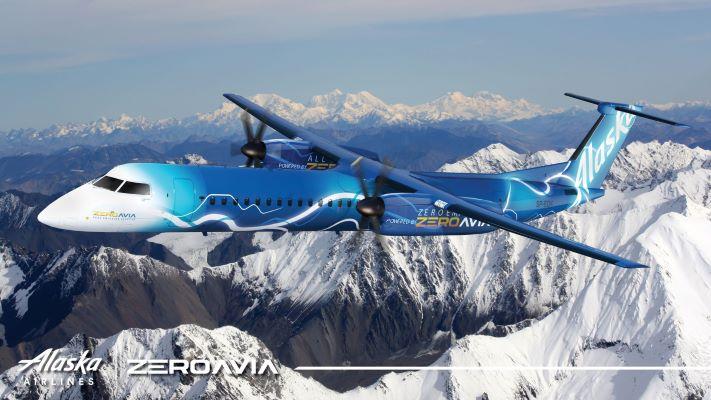
ZeroAvia picks Paine Field for Dash 8 hydrogen propulsion work
Zero-emissions propulsion developer ZeroAvia selected Paine Field, near Everett in Washington state, as the location for a flight research center to support development of a hydrogen-electric powertrain for the De Havilland Canada Dash 8-400 regional turboprop. Seattle-based Alaska Air Group in October announced that it was investing in ZeroAvia and partnering with the US/UK startup to develop the ZA2000 hydrogen fuel-cell powertrain for retrofit to the 76-seat Dash 8-400s flown by its regional subsidiary Horizon Air. Paine Field will become ZeroAvia’s third R&D center after Hollister, California, and Kemble in the UK. Washington State Department of Commerce has awarded the startup a $350,000 economic development grant to convert a warehouse in Everett into office and R&D space.

AF-KLM introduce SAF surcharge to offset cost
Air France and KLM introduced a sustainable aviation fuel (SAF) surcharge to ticket prices from Jan. 10, 2022. The move is meant to offset the higher costs of these fuels, which are seen as a key tool in reducing aviation’s carbon dioxide emissions. Both airlines will also offer passengers the opportunity to pay for extra SAF to reduce the carbon footprint of their journey. Under French law, from the beginning of this year, flights departing France need to use an average of 1% of SAF. Air France said its surcharge varies from €1-€4 ($1.1-$4.5) for economy tickets to €1.50-€12 in business class, depending on the distance of the flight. KLM has added a surcharge of 0.5% SAF for flights departing Amsterdam.
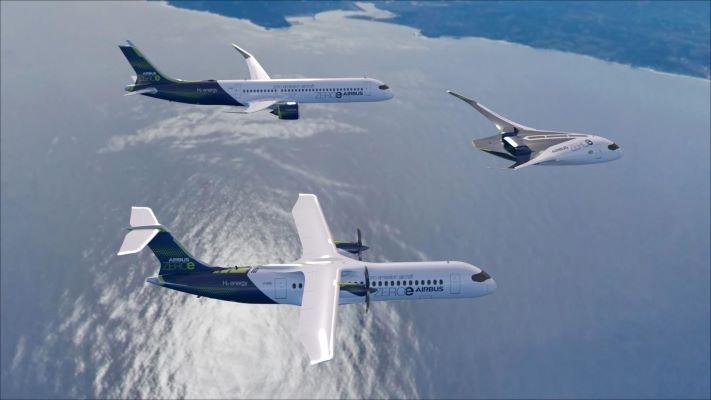
Spain’s Applus to lead cryogenic hydrogen tank testing
Spanish testing specialist Applus has been funded to develop the means for cryogenic testing of hydrogen tanks for aircraft, in support of Airbus’ initiative to field a zero-emissions airliner by the mid-2030s. Applus Laboratories will perform the materials testing research under Project Zero, which runs to 2023 and is funded by Spain’s Center for the Development of Industrial Technology using investment provided by the European Union’s pandemic-recovery funding mechanisms. Objectives of the project are to develop the special equipment required to test materials in cryogenic conditions, including the cryostat and its instrumentation, determine the testing methodology and generate the knowhow to design an industrial cryostat system. Applus will start by defining the parameters to be tested and developing experimental methods for material characterization in cryogenic conditions. The company will then run tests to demonstrate the feasibility of different experimental setups.

Palermo Airport to trial SITA technology to reduce emissions
IT provider SITA and Palermo Falcone Borsellino International Airport entered into a partnership to trial, over an initial four-month period, a unique solution that aims to cut airport emissions significantly.
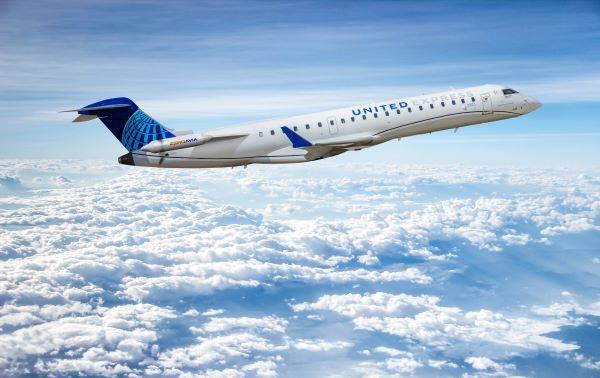
United orders up to 100 ZeroAvia hydro-electric engines
United Airlines placed an order for 50 ZA2000-RJ engines, with an option for 50 more. The engine could be retrofit to existing United Express aircraft as early as 2028. One potential use is on United’s unique CRJ550, the only 50-seat aircraft that offers first-class and other premium amenities.
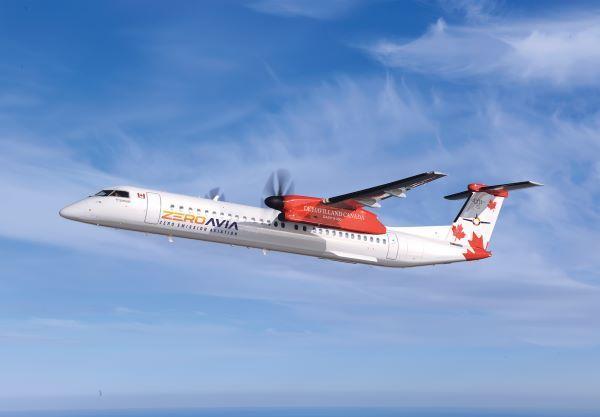
ZeroAvia, De Havilland Canada partner on hydrogen-electric-powered Dash 8-400
Zero-emissions propulsion startup ZeroAvia has signed an MOU with De Havilland Canada (DHC) to offer its hydrogen-electric powertrain for retrofit or production-line installation in the Dash 8-400 regional turboprop. The companies plan to market hydrogen-powered aircraft to operators under per-flight-hour support agreements. Under the agreement, DHC will be issued with options to purchase 50 hydrogen-electric engines. The options will be confirmed once a definitive agreement is finalized.
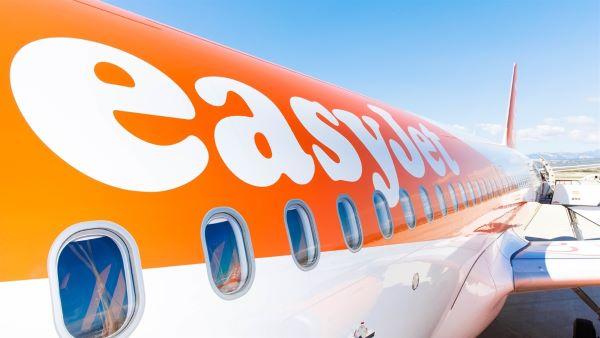
EasyJet, Rolls-Royce partner on sustainability research
UK LCC easyJet and Rolls-Royce are embarking on a two-year joint research project into sustainable commercial aircraft. The study began in January and is looking at low carbon and zero-emission technologies, such as electrical and hydrogen-based power systems. The project will run for up to two years and will include wider elements of the supply chain, such as fuel production, transportation, storage and handling. Other stakeholders, including energy providers, airports and regulators, will be invited to participate.
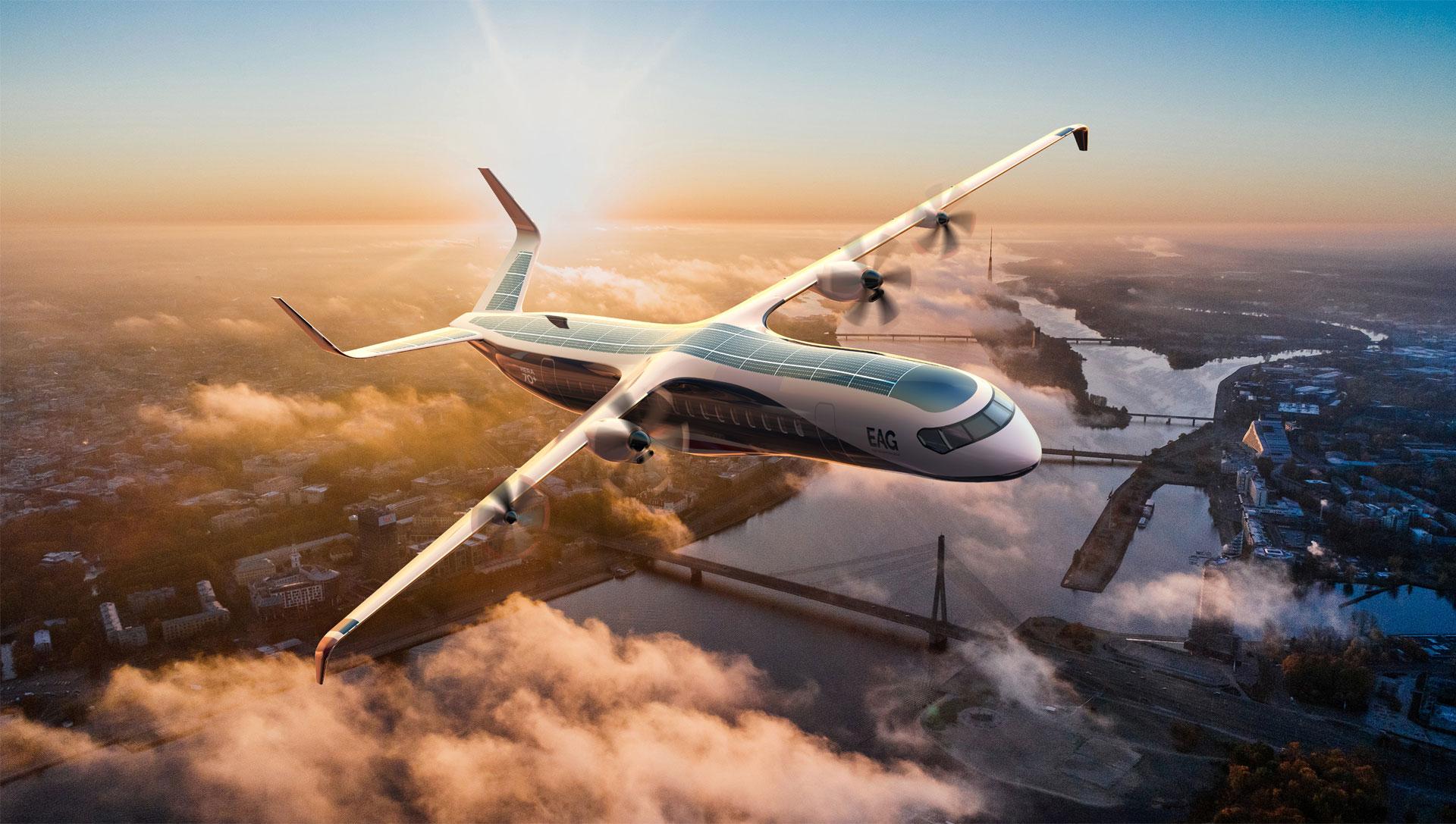
UK startup EAG teams with university on electric propulsion JV
UK startup Electric Aircraft Group (EAG) and the University of Nottingham plan to establish a joint venture to develop megawatt-class electric propulsion systems. The collaboration will support plans by EAG to develop a 90-seat hydrogen hybrid-electric regional aircraft for entry into service by 2030. The planned venture, Hydrogen Hybrid Electric Propulsion Systems (H2EPS), is intended to develop and commercialize kilowatt- to megawatt-scale, non-superconducting and superconducting, electric powertrains for aerospace and non-aerospace applications. The initial focus will be development of a 2-megawatt hydrogen fuel-cell propulsion system for the proposed H2ERA regional aircraft. EAG in 2021 secured initial investments from UK lessor Falko Regional Aircraft and Irish regional airline CityJet.
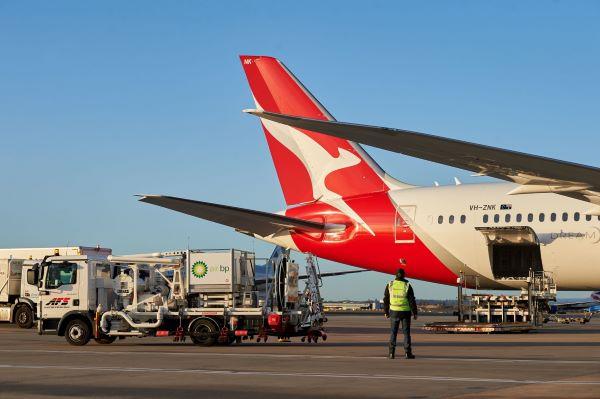
Qantas buys SAF from BP
Qantas reached a deal to purchase blended SAF to use in flights from London Heathrow Airport through at least the end of 2022. Under its deal with BP, Qantas will buy 10 million liters of SAF in 2022. This will represent 15% of the carrier’s annual fuel use for flights from Heathrow, the airline said. It estimates the blended SAF will cut carbon emissions by about 10% for these flights. The carrier also has an option to purchase another 10 million liters of SAF from BP in 2023, and the same in 2024.
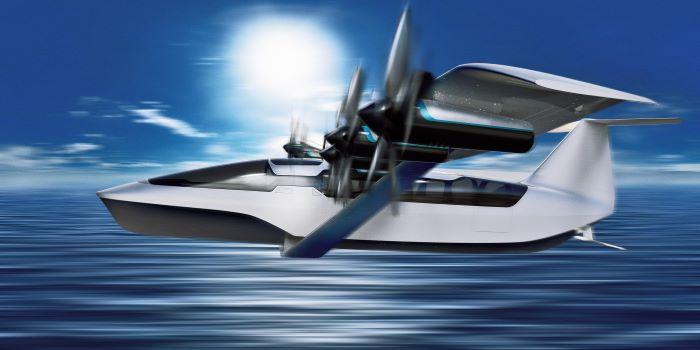
Southern Airways orders Regent seagliders
US commuter airline Southern Airways Express has become the first to place firm orders for a new form of regional transportation, the all-electric wing-in-ground-effect seagliders under development by startup Regent Craft. Cruising less than a wingspan above the sea to reduce drag, the craft will be flown on overwater routes connecting coastal markets in the Northeast and Southeast US, including Boston, Nantucket, Palm Beach and Miami. Southern has placed firm deposits on 15 Viceroy 12-passenger seagliders with deliveries planned to begin in 2025. The agreement includes five larger Monarch seagliders, which will seat between 50 and 100 passengers when developed. The transaction is valued at almost $250 million and takes Regent’s commitments to more than $600 million.
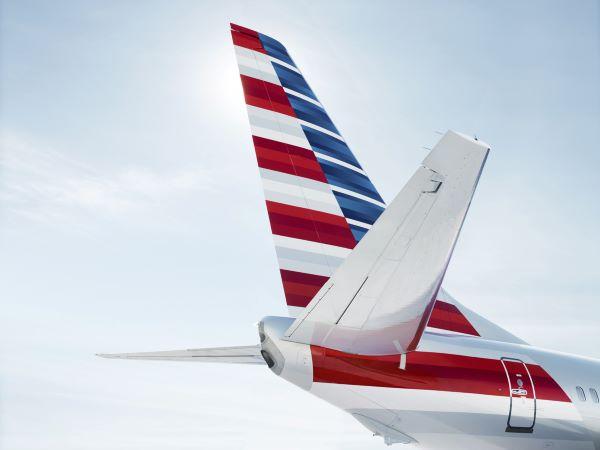
American Airlines inks SAF deal with Aemetis
American Airlines signed an agreement with renewable fuels company Aemetis for 280 million gallons of blended fuel containing sustainable aviation fuel (SAF) to be delivered over the seven-year term of the agreement. The aggregate value of the agreement is estimated to be more than $1.1 billion. The deal is part of an agreement with oneworld as nine alliance members look to purchase more than 350 million gallons of blended SAF from Aemetis for their operations at San Francisco International Airport (SFO). Once finalized, the agreements will cover the delivery of SAF over a seven-year term beginning in 2024. The SAF used by oneworld at SFO will be produced at the Aemetis Carbon Zero plant, which is currently under development in Riverbank, in the California central valley.

British Airways, Phillips 66 sign SAF agreement
British Airways and Phillips 66 Limited in early December signed a multi-year SAF supply agreement that will see thousands of tonnes of SAF produced for the first time in the UK at the Phillips 66 Humber Refinery. The SAF, made from sustainable waste feedstock, will be supplied to BA to power a number of flights from early 2022.

United flies with 100% SAF
United Airlines flew an aircraft full of passengers using 100% SAF and announced the second round of corporate participants in the airline’s Eco-Skies AllianceSM program to collectively contribute toward the purchase of SAF. The demonstration flight—which departed Dec. 1, 2021 with more than 100 passengers from Chicago’s O’Hare International Airport and landed at Washington, DC’s Reagan National Airport—was on a new United 737 MAX 8 and used 500 gallons of SAF in one engine and the same amount of conventional jet fuel in the other engine “to further prove there are no operational differences between the two and to set the stage for more scalable uses of SAF by all airlines in the future,” United said in a statement. Currently, airlines are only permitted to use a maximum of 50% SAF on board. The SAF used on today’s flight is drop-in ready and compatible with existing aircraft fleets.
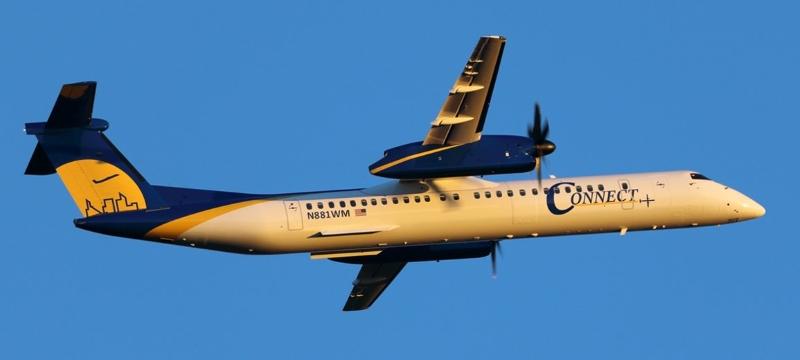
US startup Connect Airlines plans to be first ‘true-zero emissions operations’
Universal Hydrogen signed a letter of intent with Boston-based jet charter operator Connect Airlines for new green-energy propulsion that will enable Connect to soon become the first zero-emission US-based airline. Connect Airlines—which is in the final stages of its US Department of Transportation certification process as a regularly scheduled airline expected to begin service in this spring of this year—has committed to purchase 24 of Universal Hydrogen’s green hydrogen conversion kits, consisting of a firm order for 12 Dash 8-300 kits and purchase rights for 12 additional kits of other aircraft types. The conversion kits consist of a hydrogen fuel cell powertrain compatible with Universal Hydrogen’s modular capsule technology. For these aircraft, Universal Hydrogen targets installation of its conversion kits by 2025 and will subsequently supply green hydrogen fuel to the Connect Airlines’ fleet under a long-term agreement.

Heart Aerospace’s successful test flight of ES-19 electric regional airliner
Swedish startup Heart Aerospace flew a subscale model of its ES-19 electric regional airliner in December 2021. The successful flight lasted 4.5 min. during which the aircraft reached a maximum speed of 150 kph (93 mph). The takeoff and landing speed was 85 kph. The 1/5th-scale remotely controlled model flew at Säve Airport in Gothenburg, Sweden. The 19-seat ES-19 has conventional aerodynamics and aluminum structure, with the battery packs, power electronics and electric motors housed in large nacelles under the high-aspect-ratio wing. The large-diameter motors drive slow-turning propellers to reduce noise. Built using glass and carbon fiber, the 25-kg (55-lb.), 4.6-m-span (15.1 ft.) model has a scaled-down version of the ES-19’s electric powertrain, with four off-the-shelf 220-kv motors. Heart had previously ground-tested a full-scale 400-kW motor.

FAA awards SAF research grants
The US FAA is tapping some of the nation’s top research institutions to build SAF supply chains in different regions across the country. More than $1.4 million will go to five universities to undertake the research. These include Washington State University ($412,000); Massachusetts Institute of Technology ($450,000); University of Tennessee ($100,000); University of Hawaii ($100,000); and Purdue University ($350,000). FAA said the funding is part of $14.4 million in grants to teams at 13 universities across the country to undertake research critical to building a sustainable aviation system.

UK’s EAG, University of Nottingham team up on electric propulsion systems
UK startup Electric Aircraft Group (EAG) and the University of Nottingham plan to establish a joint venture to develop megawatt-class electric propulsion systems. The collaboration will support plans by EAG to develop a 90-seat hydrogen hybrid-electric regional aircraft for entry into service by 2030. The planned venture, Hydrogen Hybrid Electric Propulsion Systems (H2EPS), is intended to develop and commercialize kilowatt- to megawatt-scale, non-superconducting and superconducting, electric powertrains for aerospace and non-aerospace applications. The initial focus will be development of a 2-megawatt hydrogen fuel-cell propulsion system for the proposed H2ERA regional aircraft. EAG in 2021 secured initial investments from UK lessor Falko Regional Aircraft and Irish regional airline CityJet.
The concept of flying completely green has been taking center stage as aviation’s sustainability targets edge closer—and countries and industry players have been rising to the challenge in line with IATA’s goal of achieving net-zero carbon emissions by 2050. And partnerships are leading the way. From SAF initiatives to hydrogen-electric propulsion aircraft—as well as new concepts that reward customers for sustainability choices—the sky is literally the limit.
